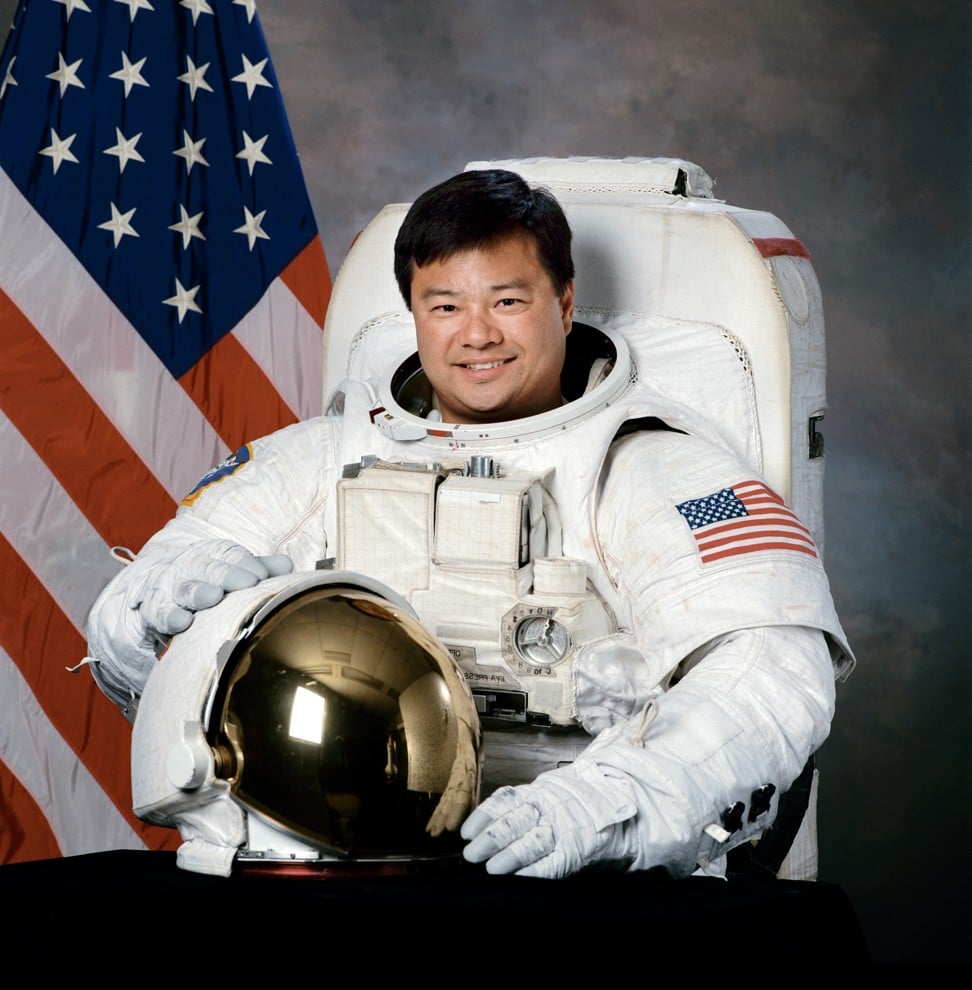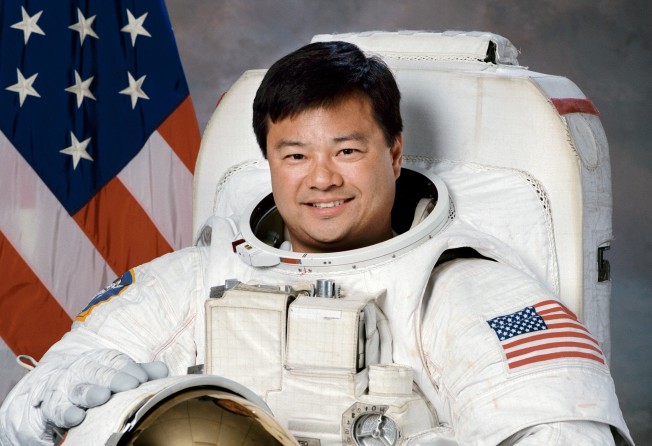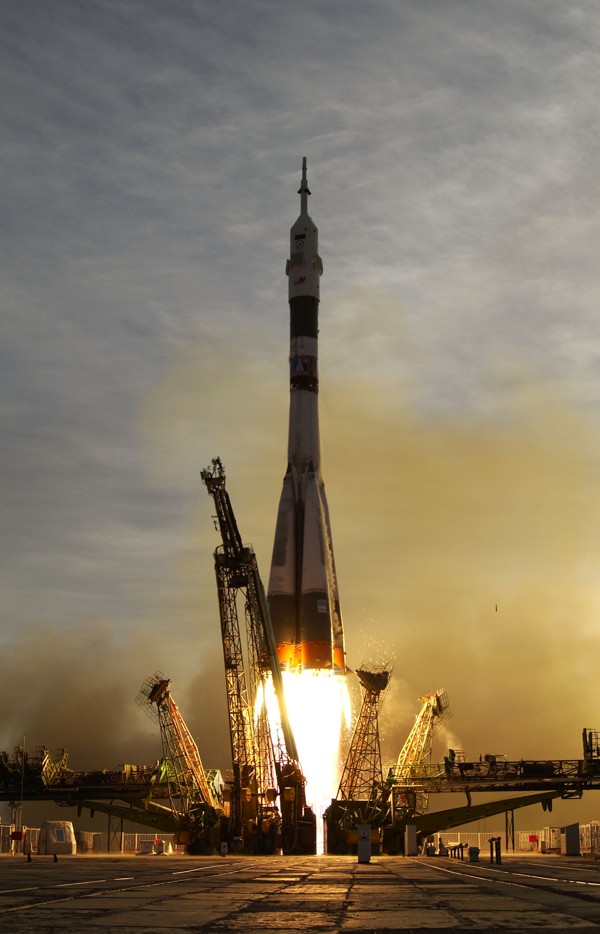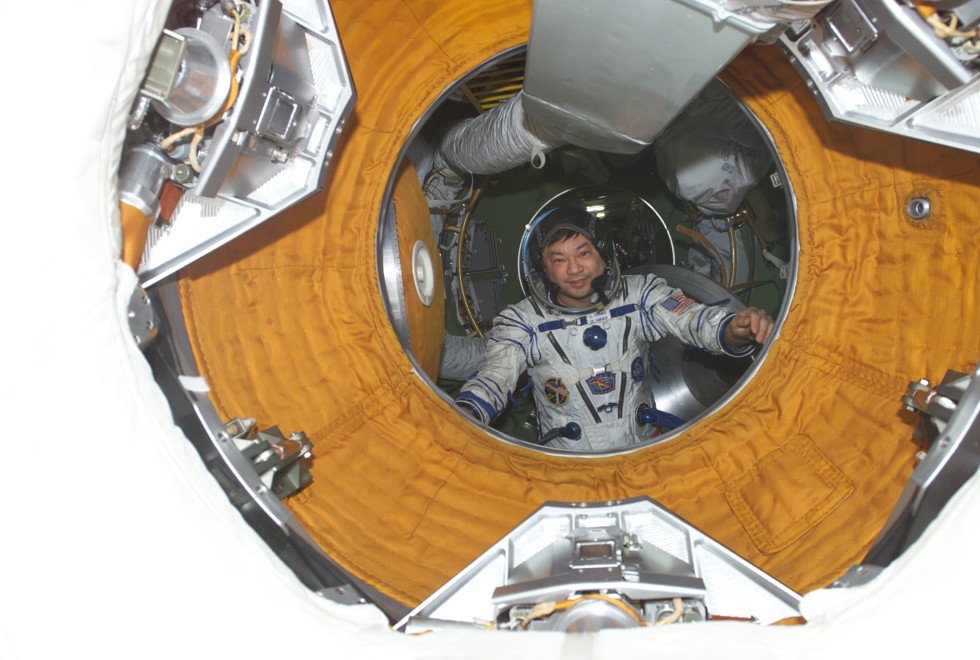
Chinese American astronaut on how his space dream came true and why Asian kids need to project themselves to succeed
Leroy Chiao grew up in an era when every kid wanted to be an astronaut; unlike most, he made it, and says Asian kids today can make it too – if they lose their reserve and promote themselves

Giants steps I was born in 1960 in Milwaukee, Wisconsin. My parents were from China but met at university in Taiwan and got married before emigrating to the United States. I have two sisters, one older, one younger.
I was eight years old when I saw the Apollo moon landing in 1969. I was riveted. We watched it all afternoon; it was so amazing to go out, look up and realise that, almost a quarter of a million miles away, two astronauts were getting ready to take their first steps on the moon. I’ve always been interested in space rockets and airplanes, but that’s where the dream started.
All the kids back then wanted to be astronauts, but it stuck with me. I was always building things on a workbench in the garage – cutting wood and making model airplanes and rockets and flying them.
A degree of difficulty I did well at school and, in 1978, started at the University of California, Berkeley, about 40 miles from where my parents lived in Danville. I got my undergraduate degree in chemical engineering.
I always say getting my bachelor’s was the single hardest thing I’ve done in my life. Once I got to university, I was working harder than I ever had before and, for the first time in my life, I was getting bad grades. It was demoralising. At the start, one instructor said, “Look around you – two out of three of you won’t pass my class.” I thought I might fail, but I pulled myself up through it. I learned to be self-sufficient and that experience made me much stronger and shaped what I became.
I went on to the University of California, Santa Barbara, where I earned my master’s and doctorate in chemical engineering.

Taking flightI learned to fly in graduate school. After I passed my PhD, I took out a loan, went to the airport right by the campus, started taking flying lessons and got my pilot’s licence.
For some people, flying is a raw thrill, but, for me, there’s satisfaction in doing something that demands a lot of precision. I don’t fly as often as I’d like – only about 50 hours a year. If I have a meeting somewhere not too far away, I’ll fly there. When I was at Nasa I had a house on a small private airstrip that we shared between the flying community. I had a hangar in my backyard with my airplane in it so I could just fly from my home.
I used to fly a lot with my wife, Karen, and she loved it, but then after we had kids she got very superstitious and said, “None of us are getting in your airplane!”
Joining the space race After university, the dream to go to space was always in the back of my mind. I worked for a company that made materials for aerospace and sports equipment, then for the Lawrence Livermore National Laboratory. By then, I had the right degrees and the right amount of work experience, so I applied to Nasa in February 1989.
Seven months later, I got a phone call inviting me to come to Houston for an interview. It meant I’d made the first cut from 2,500 applicants to the 100 they were going to interview. They wanted me there for a week, even though the interview was only an hour. The rest was a big medical exam. On average, half of the people fail this, usually for something they didn’t even know about. At the end of the week they told me I passed the medical.
Four months later, in January 1990, I got the life-changing call. I had about five or six months to wrap things up with my job and buy a house in Houston. I’ve been there ever since.

I went to space four years after arriving at Nasa, on the Space Shuttle Columbia, which had a laboratory module. Before the International Space Station (ISS), this was how we’d do research in space. During two weeks in orbit working 12-hour shifts, we got more than 80 investigations completed. I flew on three shuttles over 10 years and became a spacewalk specialist.
I helped build the ISS during the third mission and, when I got back, the chief asked me to train to work on the station, but I wasn’t sure if I wanted to live in a couple of tin cans for 6½ months. I took a few days to think about it and decided to accept that adventure.
The 3½-year space station training was a big commitment, and involved learning Russian and spending time in Star City (an area of Moscow where Russian cosmonauts train). It was exhausting, but the most rewarding mission of my career.
You get your first look at Earth from space, which was overwhelming. Earth almost doesn’t look real because the colours are so bright
Rocket man Going to space for the first time was emotional. I wasn’t scared, just really excited.
Once you get down to T-minus-zero, the rocket boosters light, adding almost five million pounds of thrust to the stack.
You’re literally exploded off the launch pad – you hear a big bang and it feels like someone has kicked the back of your seat. You can feel the vibration and hear the pitch of the wind noise changing as you rapidly accelerate. The sky turns dark pretty quickly. In less than a minute, you are higher than any plane, and you are in orbit in just under nine minutes.
There was a mirror over the window so I could watch the ground as the shuttle arched over and see the fire from the engines behind us. It was pretty thrilling.
When you are in space, the engines cut off and you are instantly weightless. You get your first look at Earth from space, which was overwhelming. Earth almost doesn’t look real because the colours are so bright. It was very beautiful and moving, especially as most of us had wanted this since we were kids.
Very long-distance relationship I first met Karen a week before I started my 3½-year space station training. We were set up by my friend’s wife. We hit it off over the phone and then, on our first date, we flew my plane from Houston to Austin, Texas, for lunch.
We got married in August 2003 and I flew on the ISS in 2004. When I was on the space station, we could chat for a few minutes every day. We’d just chat about normal stuff: what’s going on at home; what I’d been doing up here; something cool I saw. Now we are coming up on 14 years.
In Asian culture, you are not supposed to promote yourself; you are supposed to work hard and wait to be noticed, but that doesn’t work in Western culture
The next generation I left Nasa about 11 years ago. I’m currently focusing on OneOrbit, a company I co-founded in 2015. We do corporate speeches, but my passion lies in the education side, where we run programmes for kids all over the world. I have 10-year-old twins, a boy and a girl.
Asian kids or Asian-American kids, and especially girls, who grew up the way I did, are generally more reserved. In Asian culture, you are not supposed to promote yourself; you are supposed to work hard and wait to be noticed, but that doesn’t work in Western culture. I tell them it’s important to project yourself and make sure your superiors know about your capabilities and accomplishments. You are not being boastful; you are taking care of yourself.
Our big message for kids is developing ethics and morals: you are not entitled; you have to work hard, and treat people with respect. We encourage them to follow their dreams and persist. So if it doesn’t work out, at least you tried.
Leroy Chiao was in Hong Kong in August to host interactive space-themed workshops for families aboard the Genting Dream cruise ship, as part of Dream Cruises’ summer programme.
